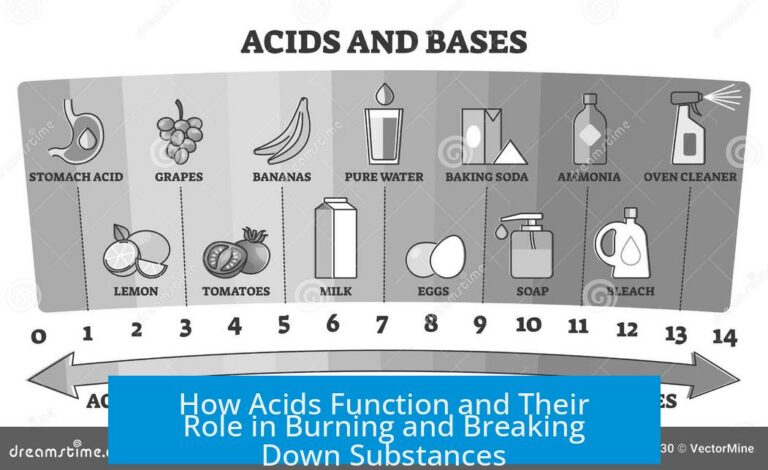How to Study in College
Effective college study means doing assigned homework thoroughly, practicing problems, preparing before class, joining study groups, attending lectures, managing time well, and engaging in active learning. Each of these steps builds a strong foundation to excel academically. Below is a detailed, structured guide to developing successful study habits in college.
1. Homework and Practice Problems
Doing homework is the core of studying. Assigned problems often resemble exam questions. Completing these problems fully is key. If more practice is desired, search for additional questions in textbooks or online. Chemistry especially demands problem-solving, not rote memorization.
- Practice rather than memorize: Apply concepts through exercises.
- Approach studying like a math class: Regular problem-solving enhances understanding.
- Stay current: Chemistry concepts build on each other; falling behind impacts later learning.
2. Reading Before Class and Using the Textbook
Preview textbook chapters before lectures following the syllabus. This primes understanding and enables more effective questions during class. Use the textbook’s practice problems to solidify concepts immediately.
- Read assigned sections beforehand.
- Do end-of-chapter problems for each topic.
- Use multiple textbooks to find explanations that resonate.
3. Study Groups and Teaching Others
Group study helps clarify difficult topics through discussion. Peer explanations accelerate comprehension. Balance solo reading with group sessions, especially before exams. Tutoring peers further enhances mastery.
- Join study groups with focused members.
- Discuss and teach topics to improve retention.
- Tutor introductory courses once confident.
4. Attending Classes and Participation
Never skip classes; lectures provide explanations and context beyond textbooks. Take handwritten notes actively during class. Review notes at the start of each session for reinforcement. Ask questions to address unclear points promptly.
- Attend every lecture.
- Engage by note-taking and questioning.
- Review notes regularly.
5. Office Hours and Building Relationships
Utilize professors’ office hours early and often. Personalized help clarifies challenging material. Building rapport with faculty is useful for mentorship and future opportunities. Engage graduate students and post-docs through research or lab work, broadening support networks.
- Visit office hours regularly.
- Participate in undergraduate research early.
- Seek lab mentors for guidance.
6. Time Management and Consistency
Create and maintain a detailed to-do list to track deadlines. Develop a daily study plan covering specific topics, preventing last-minute cramming. Consistency pays off through regular attendance and steady homework completion. Balance study with appropriate breaks for optimal focus.
- Use digital or paper planners.
- Set daily study goals.
- Include breaks but avoid excessive downtime.
7. Study Habits and Tools
Spaced repetition software such as Anki strengthens memorization. Generate question-answer sets from readings. Strengthen fundamental math skills to support chemistry problem-solving. Digital tools like tablets improve organization and note-taking efficiency. Sleep is essential for cognitive function and retention.
- Practice 45 minutes a day with flashcards.
- Improve math progressively.
- Leverage tech tools for notes and scheduling.
- Prioritize 8-9 hours of sleep.
8. Balancing Lifestyle and Social Aspects
Choose friends with similar academic priorities. Avoid distractions such as excessive social media or non-serious relationships during demanding semesters. Maintain a social life aligned with your study goals, like joining academic clubs.
- Select grade-conscious peers.
- Limit social media use.
- Get involved in subject-related organizations.
9. Preparing for Practical/Lab Work
Pay close attention in labs to understand reaction mechanisms and use of apparatus. Prepare pre-lab reports to grasp underlying theory before experiments. This approach improves lab performance and conceptual understanding.
- Be attentive during lab sessions.
- Prepare detailed pre-lab reports.
10. Advanced Tips and Career Preparation
Engage in research projects as early as possible. Undergraduate research builds skills and distinguishes resumes. Pursue internships in areas of interest to connect classroom knowledge with industry practices.
- Apply for NSF REU programs and similar opportunities.
- Seek internships relevant to your field.
11. Mindset and Motivation
Recognize that course difficulty increases gradually, allowing adaptation. Chemistry challenges reward those who persist and understand deeply. Maintain contact with material year-round rather than studying only before exams. Achieving honors requires sacrifices but yields personal growth.
- Accept gradual difficulty progression.
- Keep material fresh continuously.
- Be prepared to prioritize academics as needed.
12. Recommended Books
How to Become a Straight A Student by Cal Newport offers practical study techniques. It breaks down effective study strategies useful for college success.
Key Takeaways
- Homework and practice problems are central to learning in college.
- Pre-read materials and do the textbook exercises.
- Work with study groups and teach peers to deepen understanding.
- Attend every class; participate actively and ask questions.
- Use office hours and research opportunities to gain help and experience.
- Manage time well with daily plans and consistent effort.
- Incorporate technology and maintain healthy sleep habits.
- Balance social life with academic priorities carefully.
- Prepare for labs by understanding theory and apparatus.
- Engage in research and internships for career readiness.
- Maintain motivation and adapt mindset for gradual difficulty.
How should I approach homework to study effectively in college?
Doing homework is key. Most exam problems are similar to assigned ones. Don’t just read; solve problems. Practice helps you understand rather than memorize. Apply what you learn immediately through these problems.
Is it beneficial to read the textbook before class?
Yes. Reading the textbook in advance helps you grasp the material better. It allows you to ask clear questions during class. Follow the syllabus for which chapters to read beforehand.
How can study groups improve my learning?
Good study groups speed understanding. Explaining concepts to others boosts your own knowledge. Combine solo reading with group discussions before exams for best results.
Why is attending classes regularly important?
Cutting class harms your learning. Attend lectures, take handwritten notes, and stay engaged. Review previous notes at the start of each class and ask questions to clarify doubts.
How can I make office hours more useful?
Visit office hours early and often. Professors can help clarify tough topics. Building relationships here also opens opportunities like research involvement.
What strategies can help with time management in college?
Use to-do lists and create daily study plans. Consistency beats cramming. Schedule study blocks with proper breaks to match your lifestyle and avoid burnout.





Leave a Comment